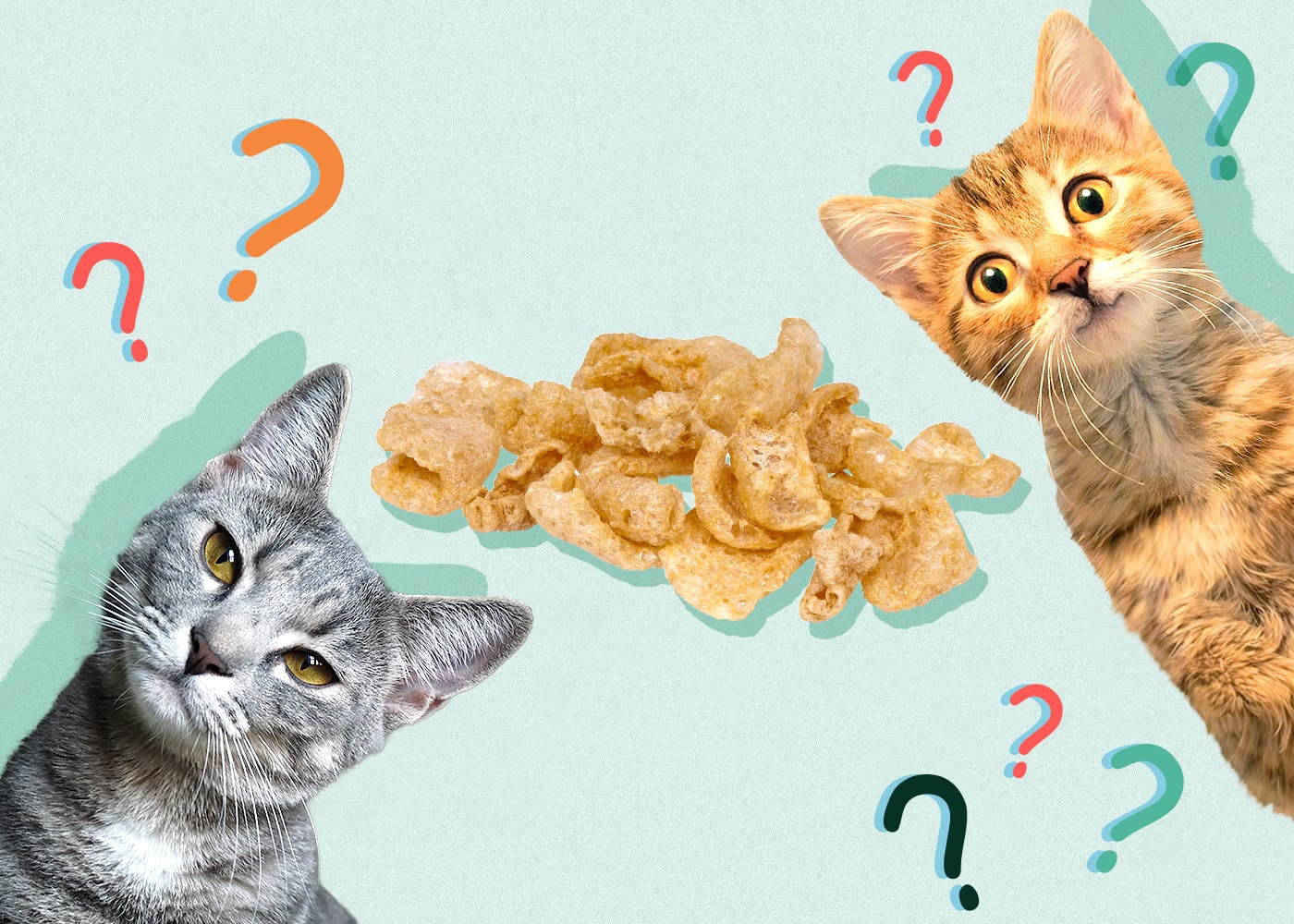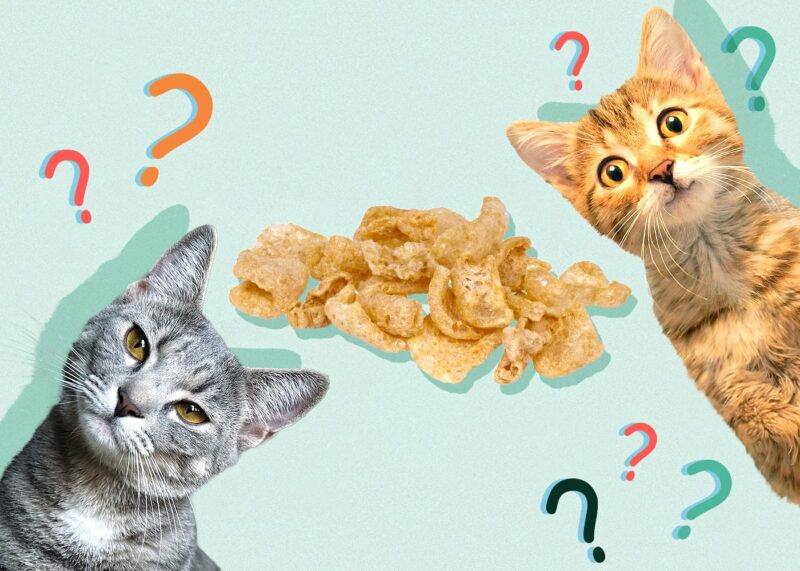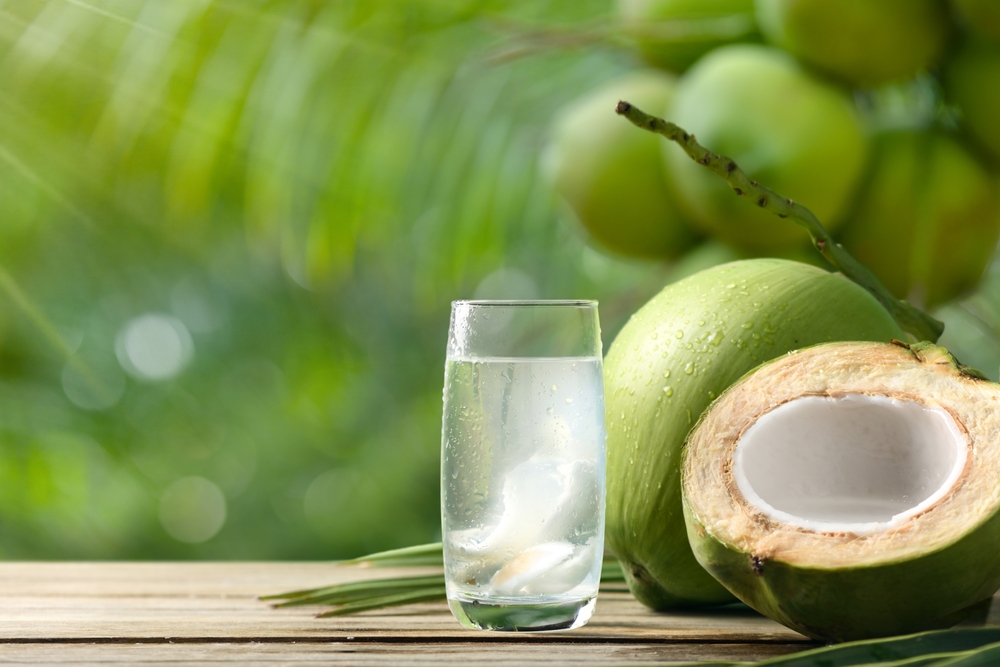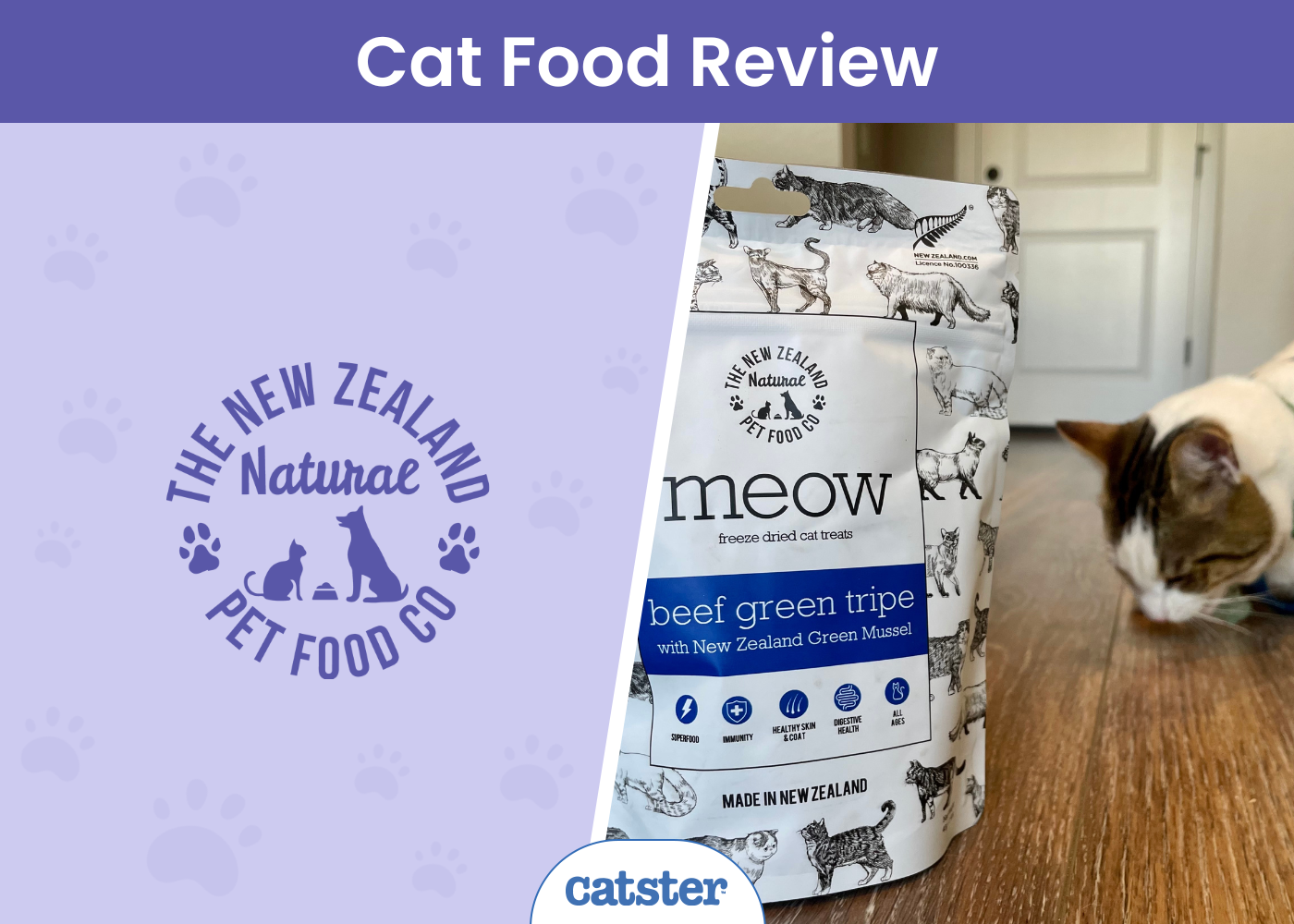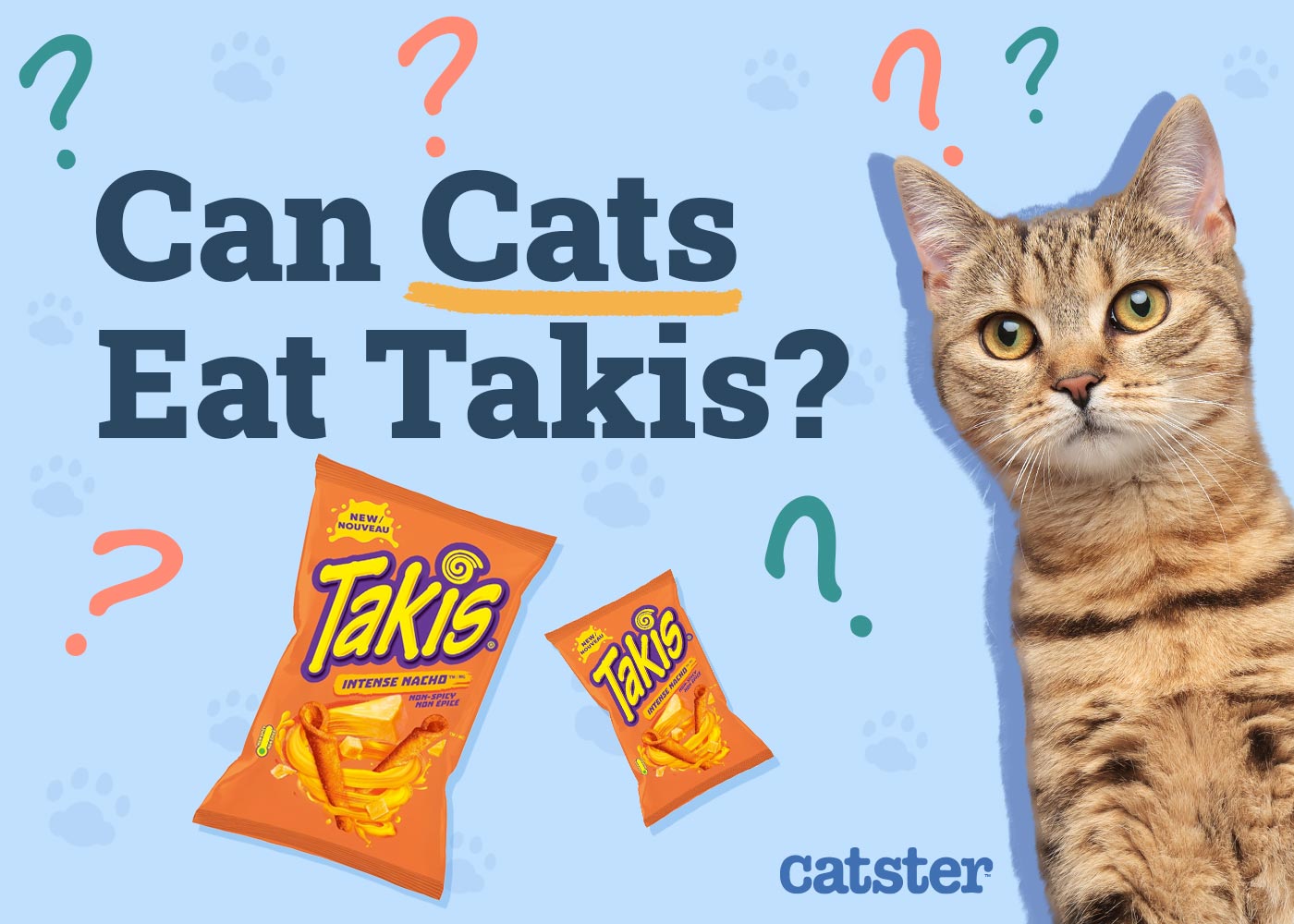If you frequently eat pork rinds either as a snack or as part of a meal, you’ve probably experienced your cat wanting some. After all, pork rinds are made from the skin of a pig, and pork is meat, so it’s no surprise that your cat wants some. But is it safe to give your cats pork rinds? And if so, is it healthy for them?
Cats can eat pork rinds in small amounts as long as they are not spicy or seasoned. They aren’t necessarily healthy for cats, but they do contain two of the most important nutrients that cats need to survive. In this article, we’ll explore why it’s mostly okay for your cat to eat pork rinds and what potential health benefits they might contain. But we’ll also explain why pork rinds in large amounts can be bad for cats.
Do Cats Like Pork Rinds?
Although each cat’s taste preferences are a bit different as far as what they like and don’t like, most cats will like pork rinds simply because they are made from meat. Even if your cat doesn’t like the taste or texture of the pork rind, he should at least be attracted to the smell of it.
With that being said, if your cat is attracted to the smell of pork rinds as you’re eating them, it’s okay to give him a bite to see if he likes it, provided that they are not spicy or seasoned. Certain spices and seasonings can upset your cat’s stomach, so it’s best to just avoid giving your cat spicy or seasoned food just to be safe.
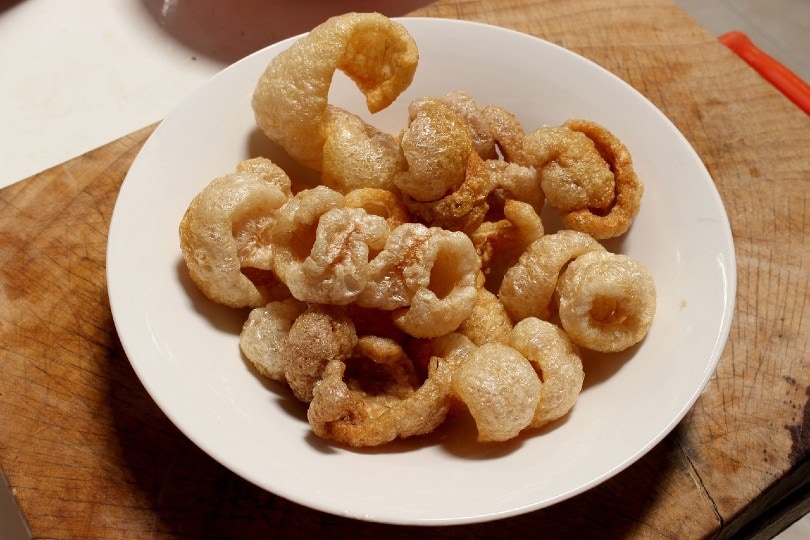
Are Pork Rinds Healthy for Cats?
Pork rinds may provide a few nutrients for cats, but there are many ways in which they are not healthy, which is why they should be avoided. Let’s first take a look at how pork rinds may be beneficial for cats.
The two nutrients that pork rinds are the highest in are protein and fat. Being obligate carnivores, which means that they have to eat meat to survive, cats require protein as their main nutrient source as it provides them with energy and helps to keep their muscles healthy and lean.
Protein content is the highest in meat, which is where pork rinds come from. That’s why it is safe for cats to eat them occasionally. However, the other important nutrient that cats need in their diet is fat, which is the most energy-rich nutrient in a cat’s diet.
Fats in a cat’s diet contain fatty acids, which are important for keeping a cat’s skin and coat healthy. They also help heal any wounds that your cat may get. Another reason why pork rinds can be healthy for cats in small amounts is because of what they don’t contain.
Pork rinds contain no carbohydrates. Although carbohydrates can also provide energy to your cat, they don’t really need that energy source since they get plenty of energy from proteins and fats.
Pork rinds also don’t contain any fiber, and although fiber can help aid in digestion in humans, it isn’t easily absorbed by your cat’s body and can actually cause digestive issues in cats. Finally, pork rinds contain zero sugar, which although it isn’t toxic to cats, isn’t easily digested by your cat’s body.
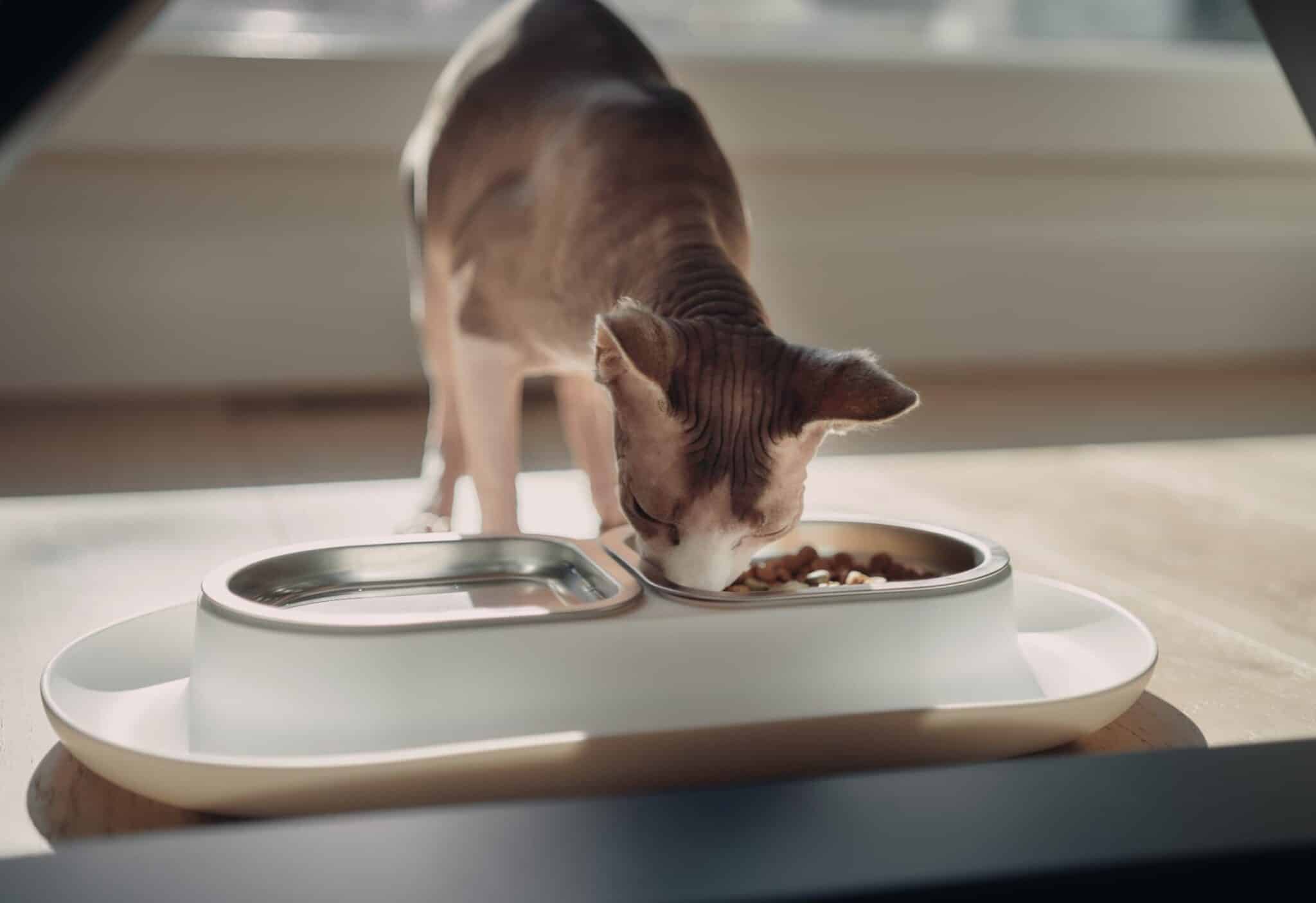
Why Are Pork Rinds Bad for Cats?
Although pork rinds can provide cats with some of the nutrients they need, other aspects explain why cats should not eat too much of them at once. For starters, pork rinds have a high sodium content, especially if you purchase them at convenience stores and supermarkets.
Sodium is another word for the salt that is in food. While eating one pork rind is not going to cause problems for your cat, eating too many of them can cause your cat to consume too much salt. Eating salt in high amounts can be potentially toxic for cats as it can lead to salt poisoning.
Salt poisoning can cause issues for cats, such as vomiting, diarrhea, incoordination, decreased appetite, or excessive thirst, depending on how much salt your cat consumes. In some cats, salt poisoning can even lead to tremors and seizures or can put your cat in a coma. Even if eating too much salt doesn’t lead to salt poisoning, it can lead to high blood pressure in cats as well, which can increase your cat’s risk of developing heart problems.
We also mentioned that pork rinds are high in fat, but unfortunately, not all of that fat is good fat. Pork rinds contain a lot of saturated fat and cholesterol. Eating too much saturated fat can lead to weight gain.
Although this isn’t necessarily bad for cats, pork rinds also don’t contain any vitamins and minerals. They get plenty of essential vitamins and minerals from their normal cat food, but the healthiest snacks for cats often contain other vitamins and minerals that they don’t get from their normal food.
Finally, any changes in diet can cause digestive issues such as vomiting and diarrhea, especially if it’s something your cat doesn’t normally eat. This is especially true for kittens, as they often have a digestive system that is more sensitive than adults. Avoid feeding your kitten pork rinds.
Final Thoughts
Plain, unseasoned pork rinds can be fed to your cat in small amounts, but they should not be fed to your cat too often. Although pork rinds may have some health benefits for cats, such as being high in protein and fat, they are also high in sodium and cholesterol, which can lead to potential problems for your cat. Pork rinds should not be used as a replacement for a cat’s normal meal, nor should they be fed to kittens. But if you’re eating them as a snack and your adult cat steals a bite, it’s likely not going to cause any major problems.

